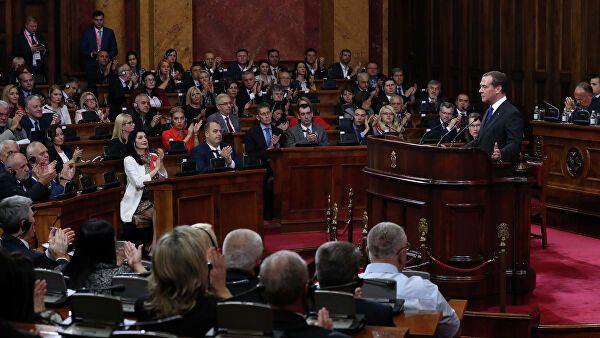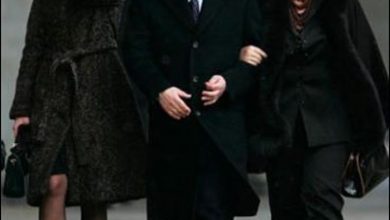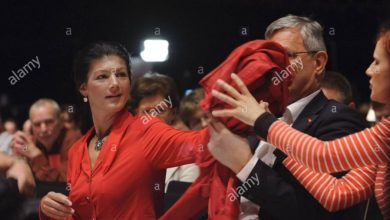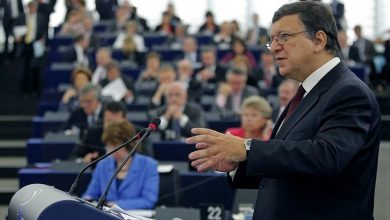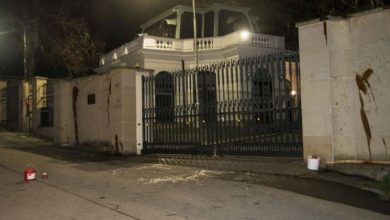Europe carefully welcomes Medvedev
Amid tense relations with Moscow, European politicians cautiously welcomed the news that Dmitry Medvedev could become the next president of Russia. Optimism appeared despite Medvedev’s close ties with his mentor Vladimir Putin.
On Tuesday, Medvedev invited Putin to become prime minister, showing that the outgoing Russian president is doomed to remain a powerful political figure.
Despite this, many consider Medvedev to be a liberal of the Kremlin’s policy, which, without changing the general course of the Russian movement, can nevertheless exert its positive influence.
“He successfully implemented Putin’s policies, and is unlikely to want to radically move away from it,” said Peter Mandelson, European Commissioner for Trade, “but he has broader economic views.”
“He has good positions in the Kremlin, but he’s not bound by the Kremlin’s policy in his actions. I believe that he will have a more modern and more open attitude to his work,” Mandelson said, adding that Medvedev is “likely “will try to maintain the role and influence of Putin instead of trying to supplant him.”
Gernot Erler, deputy head of the German Federal Ministry of Foreign Affairs, also emphasizes Medvedev’s liberal dignity in Russian politics. “It has no roots in the security services or in the army. This is one thing interesting, because such a step marks a clear departure from the situation,” Erler told the Berliner Zeitung newspaper.
But although politicians see differences in behavior, they are not unanimous about what real power Medvedev will have. Michael Gahler, Vice-Chairman of the Foreign Affairs Committee of the European Parliament, speaks about his confidence that the changes in the Kremlin will be purely cosmetic.
“Yes, he is not from the military environment. He looks nicer, he can make more pleasant statements than Putin, but I don’t think that any changes will occur in the foreseeable future,” Galer said.
“We have a saying in Germany -“ We know who is the cook and who is the waiter. ”So – Medvedev is the waiter.”
In accordance with the provisions of the Russian constitution, Putin will not be able to participate in the presidential election next year, but the fact that he will retain an influential position seems an inevitable fact.
“Putin is extremely popular in Russia. We must understand this – his popularity ratings are extremely high,” said one of the EU official representatives who wished to remain anonymous.
Analysts believe that Putin could try to strengthen the role of the prime minister by amending the constitution, take some other post, or take part in the next presidential election.
In recent years, the Kremlin has pursued an increasingly assertive policy toward Europe, experiencing confidence due to an increase in revenues from the sale of energy resources and seeing an increase in the diplomatic weight of Russia.
Friction between the EU and Moscow peaked in October 2006 in the Finnish city of Lahti, when Putin was called to account for not observing the rule of law in Russia. Putin struck back at his European critics by saying that the “word” mafia “is not from the Russian language.”
Tensions persist, especially in energy policy issues. Moscow is annoyed by proposals that, if implemented, will force Gazprom, the state-owned energy and raw materials corporation, to split its supply and retail activities if it wants to invest heavily in the European energy market.
But business-oriented Medvedev, who is the chairman of Gazprom’s board of directors, is considered a better candidate for president than former defense minister Sergei Ivanov.
“In terms of the struggle for the right to become a presidential candidate, which was fought with Sergei Ivanov, Medvedev was seen as a greater supporter of internationalism, who has good relations with the European Union; as a person seeking to gain a more important role for Russia in the globalization process,” says Thomas Gomart, head of the Russian department at the French Institute of International Relations.
“Russia considers the EU to be a market in which it wants to invest, and not political force, and such sentiments will continue in the future,” said Gomar.
According to Galer, all the changes will be insignificant, and this will not be a “post-Putin period, but a period in which Putin will remain.”
However, the president of the Warsaw Center for International Relations, Eugeniusz Smolar, thinks differently: “He is definitely from a new generation, and he is more oriented to the West.” Smolar claims that “in the new power structure, Medvedev will work with Putin in tandem, not just follow his orders.”
This post is also available in:
 English
English  Русский (Russian)
Русский (Russian)

